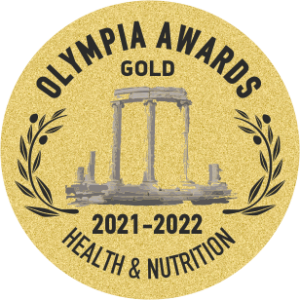


Beneficial roles of natural plant polyphenols in the human body have been known for ages. Their sources are fresh fruits, vegetables and certain processed plant foods. Polyphenols have been reported to reduce morbidity and slow down the progression of cardiovascular, neurodegenerative and cancer diseases. Figure 3 presents a wide range of different benefits of olive oil polyphenols.
The action mechanism of polyphenols is pleiotropic, however, it mostly relates to their antioxidant activity. Natural polyphenols decrease the level of reactive oxygen species protecting biomolecules against oxidative damage. They are also found to modulate the human immune system, affecting proliferation of the white blood cells and the production of cytokines.
Oleuropein, hydroxytyrosol, and their derivatives are polyphenolic compounds that are abundant in olive oil. They are powerful antioxidants displaying anticancer, anti-angiogenic and anti-inflammatory properties.
It should be emphasized that the unique properties of olive oil polyphenols have been evaluated mostly based on in vitro models. In order to verify their beneficial impact on human health, more in vivo studies and well-designed clinical trials are still necessary. Nonetheless, the preliminary results seem to be pretty encouraging in terms of prevention and treatment of cancer or cardiovascular and neurodegenerative diseases.
An increase in consumption of virgin olive oil and other plant products rich in polyphenolic compounds, specifically in populations with low olive oil intake, does seem to be rational and provide diverse health benefits.
Source



